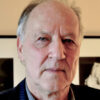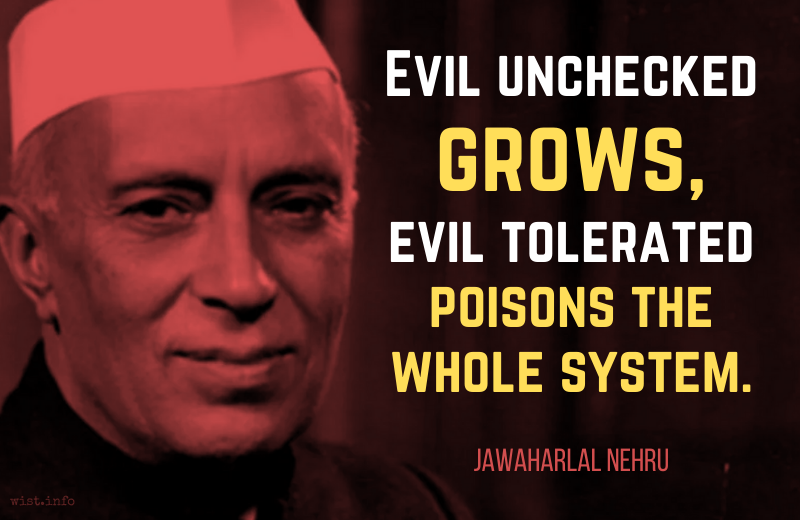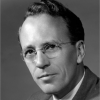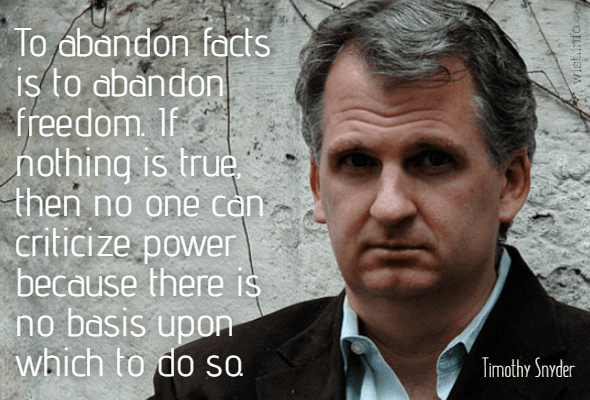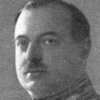Fascism, Nazism and Stalinism have in common that they offered the atomized individual a new refuge and security. These systems are the culmination of alienation. The individual is made to feel powerless and insignificant, but taught to project all of his human powers into the figure of the leader, the state, the “fatherland,” to whom he has to submit and whom he has to worship. He escapes from freedom and into a new idolatry. All the achievements of individuality and reason, from the late Middle Ages to the nineteenth century are sacrificed on the altars of the new idols.
Erich Fromm (1900-1980) American psychoanalyst and social philosopher
The Sane Society, ch. 7 (1956)
(Source)
Quotations about:
fascism
Note not all quotations have been tagged, so Search may find additional quotes on this topic.
Dear America: You are waking up as Germany once did, to the awareness that 1/3 of your people would kill another 1/3, while 1/3 watches.
Werner Herzog (b. 1942) German film director, screenwriter, author, actor
(Spurious)
Though frequently showing up in social media attributed to Herzog, this was first published by the @wernertwertzog Twitter parody account (23 Aug 2017). The account is operated by William Pannapacker, American literature professor at Hope College, Holland, Michigan.
More information about this quotation:
Fascist politics includes many distinct strategies: the mythic past, propaganda, anti-intellectualism, unreality, hierarchy, victimhood, law and order, sexual anxiety, appeals to the heartland, and a dismantling of public welfare and unity.
Jason Stanley (b. 1969) American philosopher, epistemologist, academic
How Fascism Works: The Politics of Us and Them, Introduction (2018)
(Source)
What happens when conspiracy theories become the coin of politics, and mainstream media and educational institutions are discredited, is that citizens no longer have a common reality that can serve as background for democratic deliberation. In such a situation, citizens have no choice but to look for markers to follow other than truth or reliability. What happens in such cases, as we see across the world, is that citizens look to politics for tribal identifications, for addressing personal grievances, and for entertainment. When news becomes sports, the strongman achieves a certain measure of popularity. Fascist politics transforms the news from a conduit of information and reasoned debate into a spectacle with the strongman as the star.
Jason Stanley (b. 1969) American philosopher, epistemologist, academic
How Fascism Works: The Politics of Us and Them, ch. 4 (2018)
(Source)
The pull of fascist politics is powerful. It simplifies human existence, gives us an object, a “them” whose supposed laziness highlights our own virtue and discipline, encourages us to identify with a forceful leader who helps us make sense of the world, whose bluntness regarding the “undeserving” people in the world is refreshing. […] Fascist politics preys on the human frailty that makes our own suffering seem bearable if we know that those we look down upon are being made to suffer more.
Jason Stanley (b. 1969) American philosopher, epistemologist, academic
How Fascism Works: The Politics of Us and Them, ch. 10 (2018)
(Source)
Fascist politics feeds off the sense of aggrieved victimization caused by loss of hierarchal status. Empires in decline are particularly susceptible to fascist politics because of this sense of loss. It is in the very nature of empire to create hierarchy; empires legitimize their colonial enterprises by the myth of their own exceptionalism. In the course of decline, the population is easily led to a sense of national humiliation that can be mobilized in fascist politics to serve various purposes.
Jason Stanley (b. 1969) American philosopher, epistemologist, academic
How Fascism Works: The Politics of Us and Them, ch. 5 (2018)
(Source)
It is typical for fascist politicians to represent a country’s actual history in conspiratorial terms, as a narrative concocted by liberal elites and cosmopolitans to victimize the people of the true “nation.”
Jason Stanley (b. 1969) American philosopher, epistemologist, academic
How Fascism Works: The Politics of Us and Them, ch. 1 (2018)
(Source)
Fascist politics lures its audiences with the temptation of freedom from democratic norms while masking the fact that the alternative proposed is not a form of freedom that can sustain a stable nation state and can scarcely guarantee liberty.
Fascist movements have been “draining swamps” for generations. Publicizing false charges of corruption while engaging in corrupt practices is typical of fascist politics, and anti-corruption campaigns are frequently at the heart of fascist political movements. Fascist politicians characteristically decry corruption in the state they seek to take over, which is bizarre, given that fascist politicians themselves are invariably vastly more corrupt than those they seek to supplant or defeat.
Jason Stanley (b. 1969) American philosopher, epistemologist, academic
How Fascism Works: The Politics of Us and Them, ch. 2 (2018)
(Source)
Because we have sought to cover up past evil, though it still persists, we have been powerless to check the new evil of today. Evil unchecked grows, evil tolerated poisons the whole system. And because we have tolerated our past and present evils, international affairs are poisoned and law and justice have disappeared from them.
Jawaharlal Nehru (1889-1964) Indian nationalist leader, politician, statesman, author
“The Bombing of Open Towns,” speech, International Peace Campaign Conference, Paris (24 Jul 1938)
(Source)
Nehru was comparing rising fascism to colonial imperialism, and the bombings of cities in Spain and China to ongoing British bombing of villages in the North-West Frontier of India. Collected in The Unity of India : Collected Writings, 1937-1940 (1942).
To many white Americans, President Obama must have been corrupt, because his very occupation of the White House was a kind of corruption of the traditional order. When women attain positions of political power usually reserved for men — or when Muslims, blacks, Jews, homosexuals, or “cosmopolitans” profit or even share the public goods of a democracy, such as healthcare — that is perceived as corruption.
Jason Stanley (b. 1969) American philosopher, epistemologist, academic
How Fascism Works: The Politics of Us and Them, ch. 2 (2018)
(Source)
Mussolini makes clear that the fascist mythic past is intentionally mythical. The function of the mythic past, in fascist politics, is to harness the emotion of nostalgia to the central tenets of fascist ideology — authoritarianism, hierarchy, purity, and struggle.
Jason Stanley (b. 1969) American philosopher, epistemologist, academic
How Fascism Works: The Politics of Us and Them, ch. 1 (2018)
(Source)
Representing the voices of all those whose existence has shaped and formed the world in which we live provides an essential protection against the fascist myth.
Jason Stanley (b. 1969) American philosopher, epistemologist, academic
How Fascism Works: The Politics of Us and Them, ch. 4 (2018)
(Source)
For the fascist, schools and universities are there to indoctrinate national or racial pride, conveying for example (where nationalism is racialized) the glorious achievements of the dominant race.
Jason Stanley (b. 1969) American philosopher, epistemologist, academic
How Fascism Works: The Politics of Us and Them, ch. 4 (2018)
(Source)
Fascist law-and-order rhetoric is explicitly meant to divide citizens into two classes: those of the chosen nation, who are lawful by nature, and those who are not, who are inherently lawless. In fascist politics, women who do not fit traditional gender roles, nonwhites, homosexuals, immigrants, “decadent cosmopolitans,” those who do not have the dominant religion, are in their very existence violations of law and order. By describing black Americans as a threat to law and order, demagogues in the United States have been able to create a strong sense of white national identity that requires protection from the nonwhite “threat.”
Jason Stanley (b. 1969) American philosopher, epistemologist, academic
How Fascism Works: The Politics of Us and Them, ch. 7 (2018)
(Source)
[Fascism] imagines the masses not as a pluralistic citizenry but as a primal horde whose power can be awakened by playing upon atavistic feelings of hatred and belonging. Its chosen leader must exhibit strength: his refusal to compromise and readiness to attack are seen as signs of tough-mindedness, while any concern for constitutionality or the rule of law are disdained as signs of weakness. The most powerful myth, however, is that of the embattled collective. Critics are branded as traitors, while those who do not fit the criteria for inclusion are vilified as outsiders, terrorists, and criminals.
Peter E, Gordon (b. 1966) American intellectual historian
“Why Historical Analogy Matters,” New York Review of Books (7 Jan 2020)
(Source)
Fascism, after all, is not only a historical term; it describes a modern style of authoritarian rule that seeks to mobilize the masses by appealing to nationalism, xenophobia, and populist resentment. Its trademark is the use of democratic procedure even as it seeks to destroy the substantive values of democracy from within. It disdains the free press and seeks to undermine its credibility in the public sphere.
Peter E, Gordon (b. 1966) American intellectual historian
“Why Historical Analogy Matters,” New York Review of Books (7 Jan 2020)
(Source)
To people who feel deprived of a clear social identity, Ur-Fascism says that their only privilege is the most common one, to be born in the same country. This is the origin of nationalism.
Umberto Eco (1932-2016) Italian semiotician, essayist, philosopher, novelist
“Ur-Fascism,” New York Review of Books (22 Jun 1995)
(Source)
If we could learn to look, instead of gawking,
We’d see the horror in the heart of farce.
If only we could act, instead of talking,
We wouldn’t always end up on our arse.
This is the thing that nearly had us mastered;
Don’t yet rejoice in his defeat, you men!
Although the world has stood up and stopped the bastard,
The bitch that bore him is in heat again.[Ihr aber lernet, wie man sieht statt stiert
Und handelt, statt zu reden noch und noch.
So was hätt einmal fast die Welt regiert!
Die Völker wurden seiner Herr, jedoch
Dass keiner uns zu früh da triumphiert —
Der Schoß ist fruchtbar noch, aus dem das kroch.]Bertolt Brecht (1898-1956) German poet, playwright, director, dramaturgist
The Resistible Rise of Arturo Ui [Der Aufhaltsame Aufstieg des Arturo Ui], Epilogue (1941) [tr. Tabori (1963)]
(Source)
Original German. The end of the play, after the violent death of the gangster Ui, modeled after the rise of Hitler. It was not performed until 1958 (German), 1960 (English). The above is the translation first used on Broadway (1963).
The last three lines are in the credits of the Sam Peckinpah (dir.) film Cross of Iron (1977).
Alternate translations:
Therefore we learn how to see and not to gape.
To act instead of talking all day long.
The world was almost won by such an ape!
The nations put him where his kind belong.
But don't rejoice too soon at your escape --
The womb he crawled from is still going strong.
[tr. Manheim (1981)]
The last four lines of Manheim's version were quoted by a vampire in the final episode of the first series (UK) of Being Human (2008).
Learn how to face the facts you tried to shun.
And how to act, where once you idly slept.
That's how the world was going to be run!
The nations duly mastered it, except
(In case you think the battle has been won) --
The womb is fertile still from which that crept.
[tr. Willett]
That was similar to the quatrain Willett translated (1998) from the portion of that that Brecht used in his War Primer [Kriegsfibel] (1947):
That’s how the world was going to be run!
The other nations mastered him, except
(In case you think the battle has been won) --
The womb is fertile still from which that crept.
Something like that almost governed the world.
Yet the people mastered him. But
I wish you'd hold your triumph:
The womb is fertile still from which that crawled.
[Another Kriegsfibel trans.]
Let none of us exult too soon: the womb is fertile still from which this monster crawled.
[Notes from Brecht in the notes for José Limón's unfinished memoir]
Do not applaud quite so soon, for the womb is fertile still from where this one crawled.
[Source]
It would seem … that man has been shocked by the war into forgetting how to be a political animal. This suspicion is confirmed by the spread of Fascism, which is a headlong flight into fantasy from the necessity for political thought. There is nothing more obvious about the post-war situation than that it is novel, springs from causes which have not yet been analysed, and cannot be relieved until this analysis is complete and has been made the basis of a new social formula. Yet persons supporting Fascism behave as if man were already in possession of principles which would enable him to deal with all our problems, and as if it were only a question of appointing a dictator to apply them.
Rebecca West (1892-1983) British author, journalist, literary critic, travel writer [pseud. for Cicily Isabel Fairfield]
“The Necessity and Grandeur of the International Ideal” (1934)
(Source)
Once more, let me remind you what fascism is. It need not wear a brown shirt, or a green shirt — it may even wear a dress shirt. Fascism begins the moment a ruling class, fearing the people may use their political democracy to gain economic democracy, begins to destroy political democracy in order to retain its power of exploitation and special privilege.
But although foreign and internal threats of Fascism must be taken seriously, there is no greater mistake and no graver danger than not to see that in our own society we are faced with the same phenomenon that is fertile soil for the rise of Fascism anywhere: the insignificance and powerlessness of the individual.
Erich Fromm (1900-1980) American psychoanalyst and social philosopher
Escape from Freedom, ch. 7, sec. 1 (1941)
(Source)
Any power must be the enemy of mankind which enslaves the individual by terror and force, whether it arises under a Fascist or Communist flag. All that is valuable in human society depends on the opportunity for development accorded to the individual.
Albert Einstein (1879-1955) German-American physicist
Press statement, England (15 Sep 1933)
(Source)
Fascism is capitalism plus murder.
Upton Sinclair (1878-1968) American writer, journalist, activist, politician
The EPIC Plan for California (1934)
(Source)
Often cited to his novel Presidential Agent (1944), he used the phrase often, starting at least with his run for governor of California.
Believe in truth. To abandon facts is to abandon freedom. If nothing is true, then no one can criticize power because there is no basis upon which to do so. If nothing is true, then all is spectacle. The biggest wallet pays for the most blinding lights.
There is fascism, leading only into the blackness which it has chosen as its symbol, into smartness and yapping out of orders, and self-righteous brutality, into social as well as international war. It means change without hope. Our immediate duty — in that tinkering which is the only useful form of action in our leaky old tub — our immediate duty is to stop it ….
E. M. Forster (1879-1970) English novelist, essayist, critic, librettist [Edward Morgan Forster]
“Notes on the Way,” Time and Tide (10 June 1934)
(Source)
Reprinted in The Prince's Tale and Other Uncollected Writings (1998)
Being a lover of freedom, when the revolution came in Germany, I looked to the universities to defend it, knowing that they had always boasted of their devotion to the cause of truth; but, no, the universities immediately were silenced. Then I looked to the great editors of the newspapers whose flaming editorials in days gone by had proclaimed their love of freedom; but they, like the universities, were silenced in a few short weeks. Then I looked to individual writers who, as literary guides of Germany, had written much and often concerning the place of freedom in modern life; but they, too, were mute.
Only the church stood squarely across the path of Hitler’s campaign for suppressing truth. I never had any special interest in the church before, but now I feel a great affection and admiration because the church alone has had the courage and persistence to stand for intellectual truth and moral freedom. I am forced thus to confess that what I once despised I now praise unreservedly.
Albert Einstein (1879-1955) German-American physicist
(Disputed)
Regarding the rise of the Nazi party in Germany. Originally attributed in S. Parkes Cadman, "The Conflict Between Church And State In The Third Reich," La Crosse Tribune and Leader-Press (28 Oct 1934), noted as a "free translation" made by a colleague of the writer. Made famous in being quoted in Time (23 Dec 1940). Einstein himself said that he'd said something like this to a journalist, noting that the only German intellectuals supporting individual rights and intellectual freedom in the early Nazi regime were a few churchmen. He later suggested that his words on the matter had been significantly exaggerated, and issued much more critical statements about how the Catholic Church, in particular, had been silent or collaborated with the Nazi regime. More discussion here and here.
For Liberalism, the individual is the end and society the means; nor is it conceivable that the individual, considered in the dignity of an ultimate finality, be lowered to mere instrumentality. For Fascism, society is the end, individuals the means, and its whole life consists in using individuals as instruments for its social ends.
Alfredo Rocco (1875-1935) Italian politician, jurist, economic theorist
The Political Doctrine of Fascism (1926)
(Source)
He was afraid that the world struggle today was not of Communism against Fascism, but of tolerance against the bigotry that was preached equally by Communism and Fascism. But he saw too that in America the struggle was befogged by the fact that the worst Fascists were they who disowned the word “Fascism” and preached enslavement to Capitalism under the style of Constitutional and Traditional Native American Liberty. For they were thieves not only of wages but of honor. To their purpose they could quote not only Scripture but Jefferson.
Sinclair Lewis (1885-1951) American novelist, playwright
It Can’t Happen Here, ch. 36 (1935)
(Source)
When fascism comes to America, it will be wrapped in the flag and carrying a cross.
Sinclair Lewis (1885-1951) American novelist, playwright
(Spurious)
Not found in Lewis' writing. Variants:
- James Waterman Wise, Jr., Christian Century (5 Feb 1936): "In a recent address here before the liberal John Reed club said that Hearst and Coughlin are the two chief exponents of fascism in America. If fascism comes, he added, it will not be identified with any 'shirt' movement, nor with an 'insignia,' but it will probably be 'wrapped up in the American flag and heralded as a plea for liberty and preservation of the constitution.'"
- Halford E. Luccock, Keeping Life Out of Confusion (1938): "When and if fascism comes to America it will not be labeled 'made in Germany'; it will not be marked with a swastika; it will not even be called fascism; it will be called, of course, 'Americanism.'"
- Harrison Evans Salisbury, The Many Americas Shall Be One (1971): "Sinclair Lewis aptly predicted in It Can't Happen Here that if fascism came to America it would come wrapped in the flag and whistling 'The Star Spangled Banner.'" [The quotation is not found in that book.]


